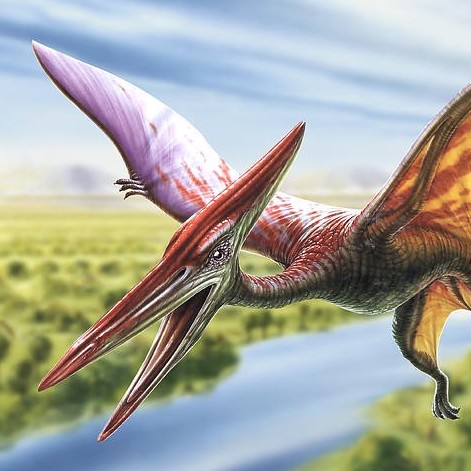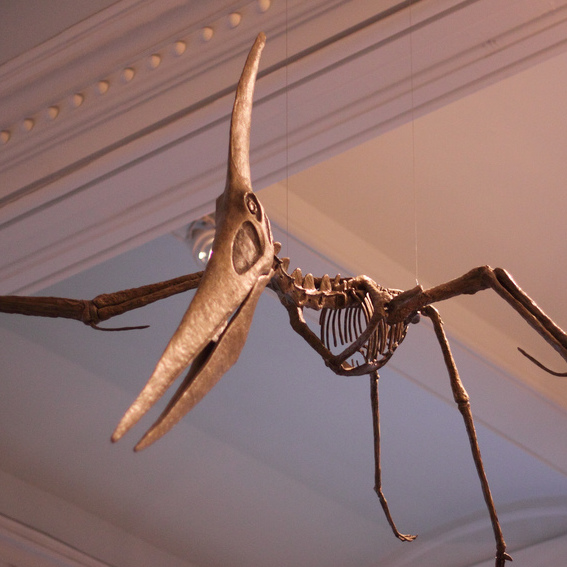Having studied newly found fossils, scientists believe the pterodactyl occupied many different lifestyles. For instance, some are believed to have spent a goodly portion of their time hanging upside down in trees, not unlike bats or sloths. When mobile on land, they may have run and hopped on two feet. Other scientists still surmise that some species may have spent time walking the earth on all fours with their wings carefully folded like a closed umbrella.
Pterodactyls had long beaks filled with about 90 teeth that were used to prey on fish.
Estimates put the weight of the Pterodactyl between 2 and 10 pounds.
Once airborne, Pterodactyls could reach speeds of over 67 miles per hour.

Given that they have often been compared to dinosaurs, many people assign them reptile-like features. It is now believe that they were probably quite fuzzy. This small distinction in appearance also leads to another revelation in what these animals were and how they were best classified. Given that they were fluffy rather than scaly, they were also likely warm-blooded, making them more like birds and bats than any other animal they've been compared to before.
One of the most notable features of a pterodactyl was its crest. Surprisingly, however, scientists have yet to determine what their crests were used for. They may have been for steering or cooling, for sexual selection, or even for species recognition. In most theories, the existence of the crest is largely associated with mating an reproduction. Recognition of species would have made it easier for the pterosaur to breed. Most analyses of the possible physical functions of this structure indicate that it wasn't effective for facilitating faster or more streamlined movement at all.
The first pterodactyls were found in the famous Solnhofen Limestone in what is now Germany. It took many years and interpretations before scientist agreed that these were flying reptiles.

Want to learn more about the dinosaur species? Click on the buttons below to read all about these prehistoric creatures.
Features of the Apatosaurus head were disputed for a century after its remains were first uncovered.
Know MoreThis dinosaur is one of the longest and most recognizable dinosaurs on the planet.
Know MorePterodactyl had wings formed by a skin stretching from its fourth finger to its hind limbs.
Know MoreIt is believed that Triceratops ate mostly low growth vegetation such as ferns and shrubbery.
Know More